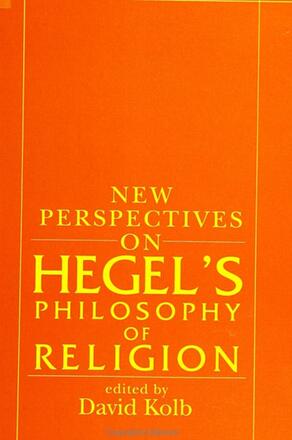
New Perspectives on Hegel's Philosophy of Religion
Alternative formats available from:
Description
Hegel's ideas about the nature of religion, its history, and its relation to philosophy have had great influence on his friends and foes alike. Relying on the new critical edition of Hegel's separate lecture courses, the essays in this book provide new insights into Hegel's ideas and challenge the way we think today. Crucial topics are discussed. Is Hegel a Christian? Does the political community absorb religion? How does religion relate to philosophy? What does Hegel have to say about evil and tragedy, about the persistence of mythology, about mysticism? The book also touches on the relation of Hegel's thoughts to deconstructive insights into religion.
David Kolb is Charles A. Dana Professor of Philosophy at Bates College. He is the author of The Critique of Pure Modernity: Hegel, Heidegger, and After and Postmodern Sophistications: Philosophy, Architecture, and Tradition.